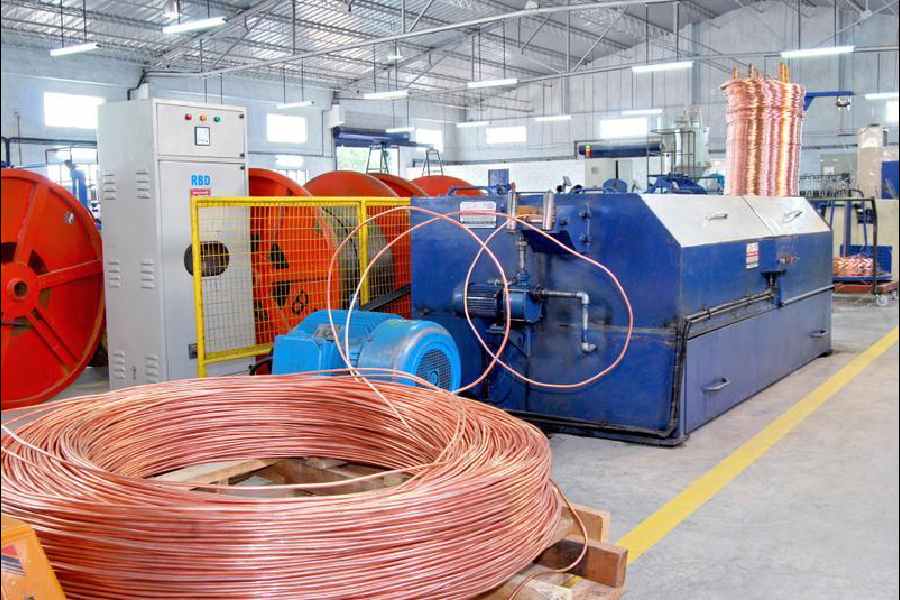The government has issued mandatory quality norms for solar cable and cast iron products to curb the import of sub-standard goods and boost domestic manufacturing of these goods.
A notification in this regard was issued by the Department for Promotion of Industry and Internal Trade (DPIIT) on August 25.
Items under Solar DC Cable and Fire Survival Cable (Quality Control) Order, 2023; and Cast Iron Products (Quality Control) Order, 2023 cannot be produced, sold, traded, imported and stocked unless they bear the Bureau of Indian Standards (BIS) mark.
This order includes electric cable for photovoltaic systems. These cables can be used indoor and outdoor for flexible and fixed installations with high mechanical strength in extreme weather conditions.
Fire cables are designed to sustain the high temperatures for a defined minimum period of time under direct fire. It is used in nuclear power plants, airports, metro rails, refineries, high rise buildings, shopping malls and cinema theatres.
These orders will come into force with effect from six months from the date of publication of this notification, the DPIIT said.
Till now, BIS certification rules were not applicable on these products.
Violation of the provision of the BIS Act can attract imprisonment of up to two years or a fine of at least Rs 2 lakh for the first offence.
In case of second and subsequent offences, the fine will increase to a minimum of Rs 5 lakh and extend up to 10 times the value of goods or articles.
According to the notification, to support domestic micro and small industries, relaxations have been granted in terms of the timeline for implementing the Quality Control Order (QCO).
Various initiatives, including the development of QCO, are being undertaken by the department to develop quality sensitisation among users and manufacturers alike.
These initiatives, coupled with developing quality testing labs and product manuals, would help build a quality ecosystem in the country, it said.
Mandatory QCOs help curb import of sub-standard products, prevent unfair trade practices, and ensure safety and well-being of consumers, as well as the environment.
"QCOs shall not only improve the manufacturing quality standards in the country but also enhance the brand and value of Made in India products," it said.
These initiatives, coupled with development testing labs, product manuals, accreditation of test labs would aid in the development of a quality ecosystem in India.
The standard issued for any product is for voluntary compliance unless it is notified by the central government to make it mandatory primarily through notification of Quality Control Order (QCO) under Scheme-I and Compulsory Registration Order (CRO) under Scheme-II of BIS Conformity Assessment Regulations, 2018.
"The objective of notifying the QCOs is to enhance quality of the domestically manufactured products, curb the imports of sub-standard products into India, prevention of unfair trade practices, protection of human, animal or plant health and safety of the environment," it said.
Earlier, such orders have been issued for several goods such as smart meters, welding rods and electrodes, cookware and utensils, fire extinguishers, electric ceiling fans and domestic gas stoves.
"DPIIT in continuous consultation with BIS and stakeholders has been identifying key products for requiring implementation of QCO. This has led to the initiation of development of 60 new QCOs covering 318 product standards," the department added.
Except for the headline, this story has not been edited by The Telegraph Online staff and has been published from a syndicated feed.










